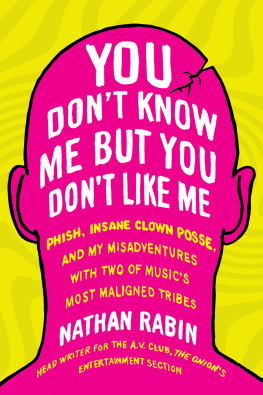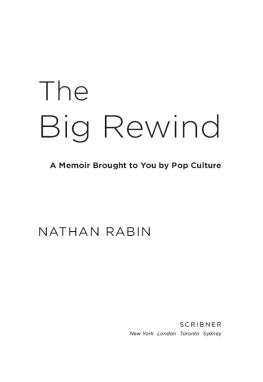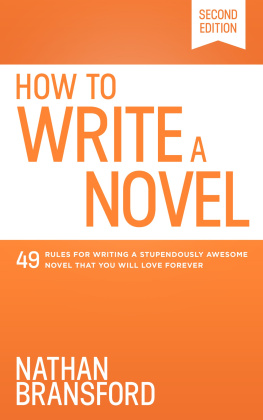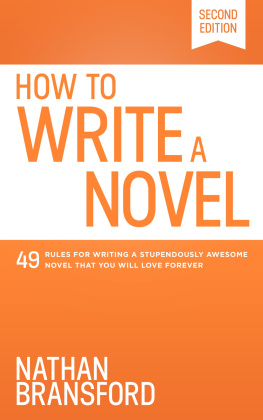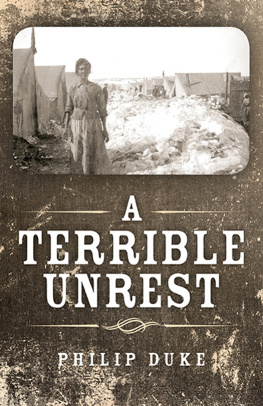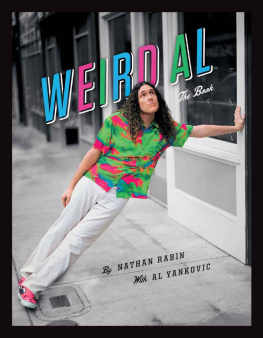Thank you for downloading this Scribner eBook.
Join our mailing list and get updates on new releases, deals, bonus content and other great books from Scribner and Simon & Schuster.
C LICK H ERE T O S IGN U P
or visit us online to sign up at
eBookNews.SimonandSchuster.com
We hope you enjoyed reading this Scribner eBook.
Join our mailing list and get updates on new releases, deals, bonus content and other great books from Scribner and Simon & Schuster.
C LICK H ERE T O S IGN U P
or visit us online to sign up at
eBookNews.SimonandSchuster.com
CONTENTS
For Keith and Stephen, thanks for giving me a career to ruin with this book
WHAT MADNESS HAVE I GOTTEN MYSELF INTO?
I t begins, as these things generally do, with a girl. When I was twenty-five years old in 2001 I traveled to Marietta, Georgia, to visit my younger sister, Shari, and became instantly enraptured with a radiant seventeen-year-old friend of hers I will call Cadence Caraway. Though we spent only an hour together having brunch, the memory of Cadence haunted me until eight years later when she contacted me on the message boards for the A.V. Club, the entertainment monolith where I have toiled as head writer since the beginning of time. We fell in love via e-mails and phone conversations before beginning a long-distance romance that found us shuttling back and forth between Providence, Rhode Island, where Cadence was getting her masters in teaching from Brown, and my hometown of Chicago.
In Providence one of our most beloved and oft-repeated rituals entailed compulsively watching the music video for Miracles, from controversial Detroit horrorcore duo Insane Clown Posse. We were mesmerized by the surreal incongruity between the gothic artifice of Insane Clown Posses wicked-clown persona and the videos glorious lack of self-consciousness. The self-styled Worlds Most Hated Group had been on the periphery of my consciousness since I started writing about pop culture for the A.V. Club. The band was an easy punch line for cynics, as well as the inspiration for the most mocked and reviled subculture in existence: Juggalos, the strange, often Midwestern creatures who wore clown makeup, greeted each other with hearty cries of Whoop whoop, Family, and Magic magic ninja what! and sprayed themselves with off-brand Faygo sodas during concerts rich in theatricality and homemade spectacle. They unite every year for an infamous multiday bacchanal known as the Gathering of the Juggalos.
Deans of pop culture had treated the duo with equal parts fascination and repulsion, but after Miracles my mild curiosity about Insane Clown Posse and the wild, weird, disreputable world they rule as clown-painted demon deities evolved into something more serious. Yet even as someone fortunate enough to be able to write about his obsessions for a living, I had only a fuzzy conception of what a massive role Insane Clown Posse (aka ICP) and especially their passionate, intense, and unique fans would play in the next few years of my life.
Cadence shared my intense obsession with Miracles even if the duos self-deprecating, tongue-in-cheek take on horrorcore couldnt have been further from her usual tastes. In one of her first e-mails to me, Cadence inquired, Do you like the band Phish? I freaked out a little bit. Asking someone if they like Phish is a loaded question. Its not like asking, Do you like Squeeze? Nobody is liable to care if you enjoy the music of the veteran British pop band behind Tempted and Pulling Mussels from a Shell, but if someone says theyre really into Phish, were often tempted to make sweeping generalizations about their personality, intelligence, personal hygiene, sobriety, class, education, and taste.
Theres a great T-shirt from my employers at the Onion that reads, STEREOTYPES ARE A REAL TIME-SAVER . Thats certainly true when it comes to Phish and Insane Clown Posse. Buy into the stereotype of Juggalos as uneducated, violent, racist, and ignorant, or Phish fans as unemployed, weed-smoking, unjustifiably privileged space cadets, and you dont have to waste time listening to their music or actually interacting with any of their fans.
Part of the revulsion people feel toward Phish and Insane Clown Posse is physical in nature. Being a hardcore Insane Clown Posse fan is an intensely visceral experience involving sticky clown makeup, soda-soaked clothing, homemade tattoos, and, in the case of the Gathering of the Juggalos, thousands of Juggalos gathering in a remote, drug-sex-and-alcohol-choked rural environment for days on end with extraordinarily limited access to showers, toiletries, and other niceties. On a primal level, a lot of people find Juggalos just plain gross.
Phish fans arent held in the same contempt, in part because their fan base tends to be better educated and wealthier than the overwhelmingly working-class Juggalos, but as the biggest and best-known jam band in existence, Phish is one of the primary targets of our cultures long-standing antihippie bias. By the time I went to college in Madison, Wisconsin, in 1994, Phish was the hippie band, just as the Grateful Dead was the hippie band for generations before it. Like the Grateful Dead, Phish tends to be judged by the culture and attitudes of its fans as much as the content of its music. As a college kid, I came to see Phish as the band whose music you were casually forced to listen to in exchange for a free bowl of pot. I dont remember the music nearly as much as I remember those experiences. I think thats true for a lot of peoples perception of Phish: The music floats away into a noodly, interchangeable blur of guitar solos and free-form sonic experimentation, but the stoned grins, tie-dyed shirts, and mellow vibes of fans linger on. In part because its oeuvre was critically unfashionable and terminally unhip, I let Phishs music wash over me without really thinking about it or really, truly listening to it.
As I grew older I internalized our cultures revisionist take on hippies as drug-addicted, myopic brats luxuriating in eternal adolescence. I inherited the widespread sense that hippies were getting away with something, that they were lazily opting out of civilization to get high in a field while the grueling machinery of late-period capitalism continued without them.
The hippie ethos and Phishs mythology are inextricably intertwined: Phish isnt a band; its a way of life. Its a name that conjures up images of lost children with scruffy beards and tie-dyed shorts and sad, emaciated pit bulls on rope chains accompanied by dreadlocked white women habitually clad in flowing dresses.
Do you like the band Phish? implicitly means, How do you feel about jam bands? How do you feel about people who follow Phish? How do you feel about marijuana and Ecstasy and nitrous and acid and mushrooms? How do you feel about traveling from town to town and devoting your life to the music of a group of middle-aged men? How do you feel about the Grateful Dead? How do you feel about the sixties? How do you feel about sex and freedom and the liberating powers of rock n roll? How do you feel about the open road? How do you feel about earnestness and sincerity and sneering, protective irony?
Did I like the band Phish? I had no idea. Id lazily bought into the overriding cultural assessment of the band and its fans, but now I had a whole new frame of reference: my beloved Cadence.
Phish had made my Cadence happy. I wanted to be part of anything that gave her joy. I fell in love with her in a way that paradoxically made me feel powerful and powerless, bulletproof and vulnerable. I felt like I could accomplish anything with her by my side but the prospect of losing her terrified me. I didnt just want to be her present and future: I wanted to retroactively become her past as well. I wanted to somehow Photoshop myself into her memories. I wanted to travel back in time and twirl ecstatically at half-forgotten festivals. I fell in love with the woman Cadence had become but I was also in love with the beautiful child she had been. Maybe thats what my sudden urge to see as many Phish shows as possible was ultimately about: rewriting Cadences history with me as the romantic lead.
Next page
